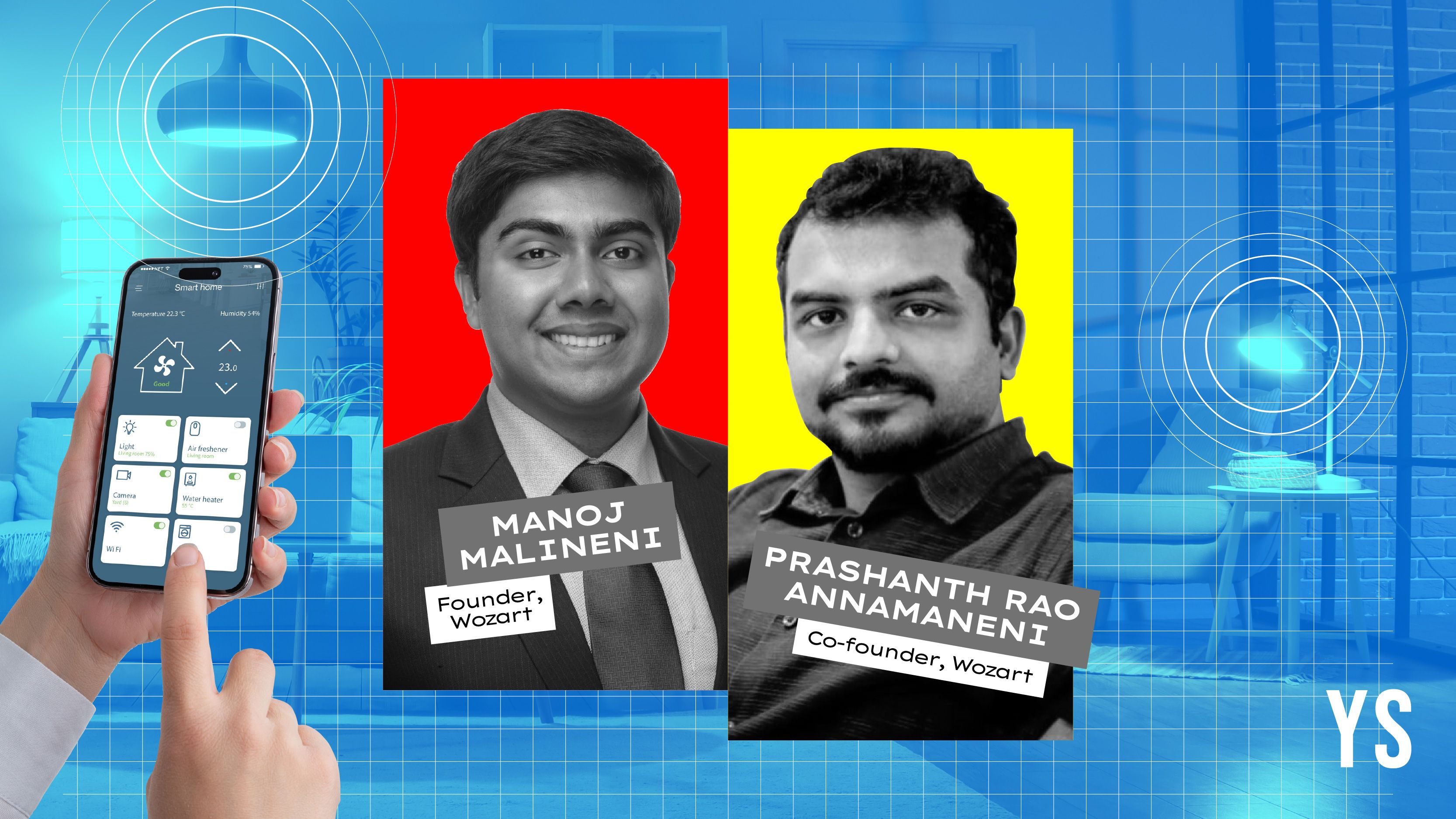Copyright yourstory

When Hyderabad-based began its journey in 2016, it had a simple goal: to make homes smarter, simpler, and more connected. Its first breakthrough came with India’s earliest Apple HomeKit-supported smart switches, letting users control lights and appliances with nothing more than a voice command. Nearly a decade later, the startup has grown into one of India’s leading smart home automation brands. It just marked another milestone, becoming the first Made-in-India startup to launch a Matter-certified Thread device, the Switch Controller Mini. “The new Switch Controller Mini is a major leap for us,” says Manoj Malineni, Co-founder of Wozart. The compact retrofit device sits discreetly behind any switchboard, connecting all the lights, fans, and appliances on that board to Apple HomeKit, Google Home, Amazon Alexa, and Samsung SmartThings. Launched in September 2025, it runs on the Matter and Thread protocols, enabling seamless interoperability, ultra-low latency, and a future-ready smart home experience. From first-generation switches to the Matter era Malineni started this journey with his co-founder, Prashanth Rao Annamaneni, his batchmate from BITS Pilani, Goa. They began with the first-generation smart switches designed to work exclusively with Apple HomeKit, at a time when Alexa and Google Home were not even available in the Indian market. As consumer needs evolved, so did the startup’s technology. The startup now provides its own application, Wozart, for iOS and Android, and has over 1,000 users. “We wanted to give users the freedom to choose any platform,” Malineni says, “Before Matter existed, we built one of the world’s first systems that supported all four major ecosystems simultaneously.” Wozart’s Switch Controller Mini fits neatly behind a switchboard, occupying just 20mm of space, compared to 25–26mm for competing products. The startup also offers smart lighting dimmers, tunable drivers, and a presence sensor that can detect even stationary people, ensuring a home adjusts automatically without manual input. “With presence sensors installed, you never have to touch a switch again,” Malineni says. “It’s not just convenience; customers are saving up to 30% in energy through automation.” Wozart is also weaving AI into several layers of its work. The team now uses AI tools to write, test, and optimise new firmware for its devices. The startup is venturing into AI and robotics, with an in-house robotics lab focused on designing actuators and gearboxes. “We’ve already manufactured our own gearbox and actuator prototypes,” Malineni says. “Next, we’ll build a robotic arm, then a mobile manipulator, and finally a humanoid robot.” Wozart manufactures all its products in-house at its Hyderabad facility. Components such as chips, relays, and power modules are sourced from suppliers, but the startup handles the final assembly, testing, and packaging. “Our manufacturing is automated enough that one operator can manage the entire line,” Malineni says. Wozart employs around 20 people, including engineers and factory staff, and focuses on building hardware that is future-proof and globally compliant. The startup is part of the NVIDIA Inception Program, which supports its R&D in vision-language-action AI models for robotic control. A shift from DIY to experience-driven sales Initially, Wozart tried selling directly through Amazon and its website. But the startup soon realised that Indian homeowners preferred seeing and experiencing smart automation before making a purchase. “Indian customers aren’t typically DIY-driven,” Malineni says. “They want to see how the product works, what it feels like.” The startup follows a B2B model, building a network of over 100 channel partners, of which around 60 remain active. These partners handle installation and after-sales service across cities; Wozart manages its own projects in Hyderabad. The startup has automated over 10,000 homes and deployed nearly 25,000 devices so far, operating mainly across Tier I cities. The brand has also tied up with real estate developers such as Aparna One in Hyderabad and BrahmaCorp in Pune to automate entire residential complexes. “In the Aparna project alone, we’re automating 300 apartments, each worth Rs 1.6 lakh in automation equipment,” says Malineni. For individual customers, the average automation cost for a 3BHK apartment starts at Rs 35,000–Rs 40,000, and can go up to Rs 1 lakh, depending on the level of control and sensors. Wozart has remained completely bootstrapped since its inception. Last year, the startup generated Rs 3 crore in revenue. In FY26, its revenue is projected to reach Rs 5 crore. “We could have raised funding earlier, but back then most investors were interested in SaaS, not hardware,” Malineni says. “Now, we’re open to partnering with investors who understand hardware and want to back homegrown innovation.” Like many Indian hardware startups, Wozart’s early days were tough due to the lack of vendors, suppliers, and testing facilities. Malineni believes things are improving with initiatives like T-Works in Hyderabad, but building reliable hardware at scale in India is still a big challenge. As the competition is rising, with global brands like Schneider and Legrand, and local players such as Smart Node and Kyos. But Malineni remains confident, saying, “Wozart stands out for its interoperability and reliability, unlike competitors that still depend on proprietary platforms.” What comes next? According to a Mordor Intelligence report, India’s home automation market is valued at around $5.2 billion for 2025 and is expected to grow at over 24% CAGR, reaching nearly $19–47 billion by 2030–2033. “It’s a big ocean, but we’re aiming to capture around 40% of the market,” Malineni says. Wozart’s roadmap for the next 12–18 months focuses on expanding both its core home automation line and new technology verticals. Malineni says the startup’s focus is on getting all products Matter-certified while also securing FCC and CE approvals for global exports. With plans to take Made-in-India automation worldwide, Wozart is also gearing up to expand into Tier II cities next. Another major focus area is B2B real estate automation, which Malineni sees as the key growth driver. “We realised that converting one developer project is the same effort as selling to hundreds of individual customers. That’s where the real scale and cash flow lie.” (Edited by Jyoti Narayan)



